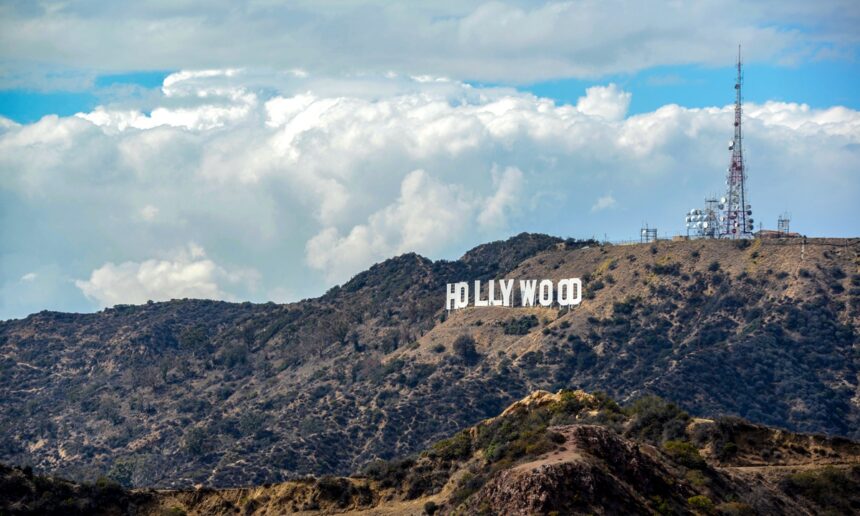US President Donald Trump has made another new tariff move, this time announcing on Sunday on his Truth Social platform that he has authorized the Commerce Department and US Trade Representative to begin the process of instituting a 100 percent tariff on films that are produced in foreign lands and imported into America.
The proposed tariff on movie prompted disagreement from a former US government official and left Hollywood studio executives scrambling to determine what the announcement will mean for their business.
The new tariff plan has also reportedly drawn responses from Australia and New Zealand, which vowed to defend the rights of their domestic film industry.
Former US Commerce Department official William Reinsch, now a senior fellow with the Center for Strategic and International Studies, warned that retaliation against the move could be devastating for America’s film sector, saying, “The retaliation will kill our industry. We have a lot more to lose than to gain,” Reuters reported.
Hollywood studio executives said they received no prior warning about the tariff plan and no information about how it might work, the Wall Street Journal reported.
It is unclear how such a tariff would work, as movies are not physical goods that pass through ports like typical imports subject to tariffs. The US administration would need to determine how to value a movie in order to apply the tariffs, as well as what the threshold would be to classify it as an import, according to the Wall Street Journal.
The policy also drew responses from the governments of Australia and New Zealand. Australian Home Affairs Minister Tony Burke said he had spoken with the head of Screen Australia about the potential impact, stressing, “Nobody should be under any doubt that we will be standing up unequivocally for the rights of the Australian screen industry,” Reuters reported.
New Zealand Prime Minister Christopher Luxon said his government was awaiting more information on the proposed measures. “We’ll have to see the detail of what actually ultimately emerges. But we’ll be obviously a great advocate, great champion of that sector and that industry,” he said, per Reuters.
In addition, Caroline Dinenage, Conservative member of parliament and chair of the UK parliament’s cross-party culture media and sport committee, was quoted by the Screen Daily, a London-based film industry media outlet, on Monday, that “making it more difficult to make films in the UK is not in the interests of American businesses.”
Philippa Childs, head of Bectu, the union of freelance workers in the UK’s media and entertainment industries, said: “The UK government must move swiftly to defend this vital sector, and support the freelancers who power it, as a matter of essential national economic interest,” according to the Screen Daily report on Monday.
For years, Hollywood has relocated productions to countries such as the United Kingdom, Australia, Ireland and Spain for their tax incentives, the Hollywood Reporter reported.
Film and television production in Los Angeles has fallen by nearly 40 percent over the last decade, according to FilmLA, a non-profit that tracks the region’s production.
“The Movie Industry in America is DYING a very fast death. Other Countries are offering all sorts of incentives to draw our filmmakers and studios away from the United States,” US president Donald Trump claimed in his Truth Social post.
US Commerce Secretary Howard Lutnick also responded to the new tariff plan on X on Sunday, saying, “We’re on it.” However, neither Lutnick nor Trump provided any details on how the tariffs would be implemented, according to Reuters.
Currently, several high-budget Hollywood blockbusters that were filmed across multiple international locations are awaiting release, including Mission: Impossible – Dead Reckoning Part Two, Avatar: Fire and Ash, and a spinoff of Lionsgate’s John Wick franchise, and Marvel Studios’ Avengers: Doomsday has also begun filming in London, according to Yicai.
Many Hollywood films are produced abroad and involve global collaboration, with a large share of their box office revenue coming from overseas. If foreign markets retaliate, the consequences for Hollywood could be disastrous, Tan Fei, a renowned film producer and movie critic, told the Global Times on Monday.
For New Zealand and Australia – both key overseas filming locations for many Hollywood productions such as Avatar, which was shot in New Zealand – the uncertainty caused by the proposed tariffs could negatively impact their local film industries, Tan said.
The globalized nature of the film industry makes it nearly impossible to define what constitutes a “foreign-made” film. “This tariff policy is unlikely to offer any real protection to Hollywood,” Tan said.













